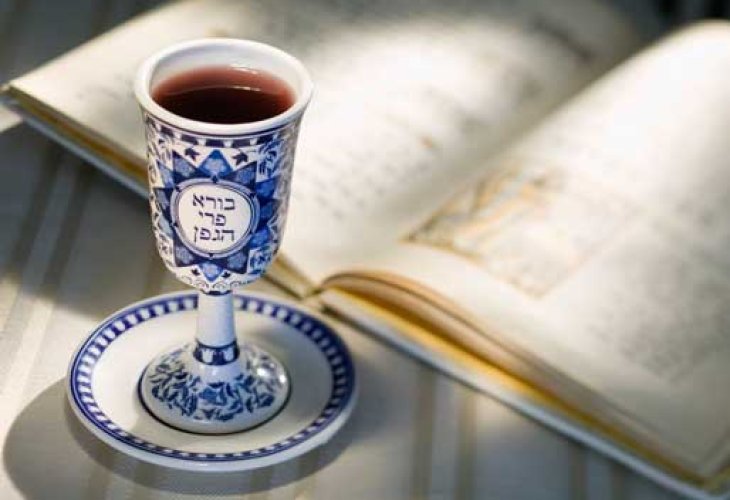Jewish Law
Why Women Don’t Drink from the Havdalah Cup: Symbolic and Halachic Explanations
The fascinating reasons behind the custom for women to refrain from tasting the Havdalah wine, and learn the practical ruling according to Jewish law
- |Updated

In Responsa Kiryat Chana David (vol. 2) by Rabbi David HaCohen Skali, a rabbinic judge in Morocco, he writes: “The custom among women not to taste from the Havdalah cup seems to stem from the Midrashic teaching that Chava (Eve) squeezed grapes and gave them to Adam, thereby causing good and evil to become intertwined. Through our mitzvot and actions, we strive to separate good from evil — this is the essence of Havdalah, which literally means ‘separation.’ Therefore, we recite Havdalah over wine to correct what was distorted through the wine of the woman, distinguishing between light and darkness, holy and profane. Since she caused this mixture, women refrain from tasting it.”
In Responsa Har Tzvi (vol. 1, 155), Rabbi Tzvi Pesach Frank cites Rabbi Isser Zalman Meltzer, who gave a halachic explanation for the custom of women not tasting from the Havdalah wine: “We are concerned for the opinion that women are not obligated in Havdalah. If that is the case, when she answers Amen to the blessings over the fire and Havdalah, it would constitute an interruption between the blessing over the wine (Borei Pri HaGafen) recited by her husband and her drinking. Therefore, women refrain from drinking from the cup.”
However, Rabbi Frank questions this reasoning, noting: “After all, she is at least doubtfully obligated in Havdalah, and even a doubtful obligation is still considered an obligation. Thus, it should not be an interruption.”
Rabbi Moshe Sofer (the Maharam Sofer) was also asked by a distinguished rabbi to explain this custom. He cites the earlier Midrashic reason — that Chava gave Adam the forbidden grapes — but dismisses it: “Since the sin of the Tree of Knowledge occurred on Friday, if that were the reason, women should also refrain from drinking the Kiddush wine on Shabbat, which they do not.”
He then brings a different explanation: The law states that someone who has already fulfilled Havdalah may still perform it again to discharge others of their obligation — and this includes the blessing over the wine. However, if one of the listeners has already fulfilled Havdalah, they cannot fulfill their obligation again through another’s blessing over the wine.
Therefore, since there is a halachic doubt whether women are obligated in Havdalah, this creates a similar doubt regarding their ability to fulfill the wine blessing through the one making Havdalah. If they are obligated, then they fulfill Havdalah through him and need not recite their own blessing over the wine. But if they are not obligated, then his blessing does not cover them, and they would need to make their own blessing before tasting the wine.
Because of this uncertainty, the preferred custom became that women do not taste from the Havdalah cup.
There are several reasons given for why some women do not drink from the Havdalah cup:
The symbolic reason: Chava caused the blending of good and evil by giving Adam wine from the Tree of Knowledge; Havdalah symbolizes the rectification of that act through separating sacred from profane.
The halachic reason: Since some opinions hold that women are not obligated in Havdalah, there is doubt whether they can fulfill the blessing over the wine recited by the one making Havdalah.
However, the halachic ruling (Shulchan Aruch, Orach Chaim 296:8) is that women are obligated in Havdalah, just as they are in Kiddush.
Rabbi Shai Amar, Hidabroot Halachic Department

